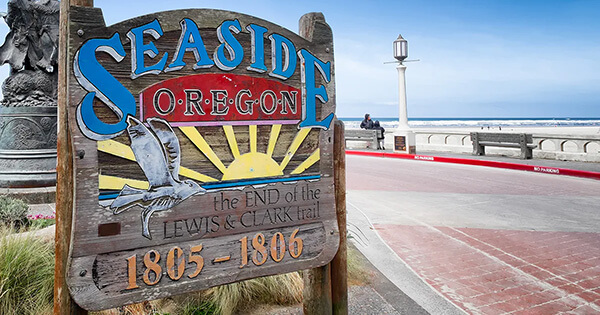By Tim Schermetzler of CSD Attorneys at Law P.S.
ELECTION SEASON REMINDERS
It’s an election year, which means election law is front and center. In this month’s column, I will
discuss updates to port-specific election laws and revisit some election season tips for port staff,
commissioners and candidates to keep in mind.
New Election Law
It’s not often that port-specific legislation is passed related to port elections. This year, however,
there are a few updates to election laws related to ports.
The legislature passed SB 5370 giving ports the option to lengthen port commissioner’s terms
from four to six years in certain circumstances. This new law goes into effect on July 27, 2025.
Prior to this law, ports had authority in RCW 53.12.175 to reduce the term for commissioners in
their district from six years to four years. However, the reverse was not true, which has
prevented some smaller port districts from increasing their commission terms.
This new law does not impact county-wide port districts with populations of one hundred
thousand or more because RCW 53.12.221 limits those commissioner terms exclusively to four
years. Many port districts not constrained by RCW 53.12.221 already have six-year terms for
their commissioners. However, smaller, non-county-wide port districts that currently have four-
year commission terms will now have the ability to increase those terms to six years. This
process can be commenced in two ways, (1) by resolution of the port commission; or (2) by
petition of the voters, after which a ballot proposition is presented to the voters at the next
general election that occurs 60 or more days after the adoption of the resolution or submission
of the petition. The ballot proposition requires only a simple majority to pass.
The legislature also passed HB 1573, which made changes to the timing for oath of office. Prior
to HB 1573, the oath of office had to occur up to 10 days prior to the date of assuming office or
at the last regular meeting for the port held before the elected candidate is to assume office. 1
This new legislation modifies RCW 29A,60.280 to allow more flexibility in the timing of the oath
of office. Now, the oath may be taken anytime between certification of the election and the day
prior to when the term of office begins. This new law also goes into effect July 27, 2025.
Other than the timing, no other changes were made to administering the oath of office. Port
commissioners, as elected officials, must take an oath or affirmation of office prior to serving. 2
In taking the oath, the elected commissioner swears or affirms that they will faithfully and
impartially discharge the duties of the office to the best of their ability. The oaths also typically
include a statement that the elected official will support and uphold the law, including the
Constitutions of the United States and Washington and other statutes and local ordinances.
The oath may be done at a formal meeting of the governing body, but this formality is not a
statutory requirement. The oath must be done by a notary public or other officer authorized by
RCW 29A.04.133(3), such as a judge, court commissioner, or city or county clerk.
1 RCW 29A.60.280(3).
2 RCW 29A.04.133(3).
Election Season Tips for Port Staff, Commissioners, and Candidates
In election years, local government officials and employees are regularly faced with making
decisions about election-related questions and activities. Officials and employees must remain
vigilant about staying on the right side of the line that distinguishes acceptable activities from
those prohibited by law.
- No Use of Public Facilities or Resources. In general, RCW 42.17A.555 prohibits the use of public facilities by an elected official or any government employee to support or oppose candidates or ballot measures. As most are aware, this includes the use of port employees (or for that matter, any public agency) during working hours and the use of public property such as stationery, postage, equipment, cell phones, vehicles, office space, customer or tenant lists, or agency documents not made available to the public. Of course, on their own time and without using government resources, port employees can support or oppose a candidate for elected office and any ballot proposition.
- Campaign Signs. The prohibition concerning the use of port facilities extends to political signs posted on port property. However, what about campaign signs posted on a port tenant’s leasehold? The lease language must be checked to see if the port has retained sign approval. If the port does not have sign approval language in the lease, it may be difficult to control political signs on the leasehold. When imposing controls on signs, the Port should be mindful of tenants’ First Amendment speech rights, especially as it relates to controlling the content of political speech which receives heightened constitutional protections. To that end, a port should not, by lease or otherwise, prevent a tenant from engaging in political speech by, for instance, making a rule that no political signs are allowed. However, a port may impose reasonable “time, place, and manner” restrictions in a policy that addresses the quantity, size, and duration of any political signs. For example, a port may allow two political signs of a certain size and only from July 1 st through the general election.
- Use of Publicly Owned Images or Videos. Several port commissioners running for reelection have asked if they can use copies of port photographs or videos taken from the port’s website or social media post and import them onto their campaign website, social media post, or campaign materials. The answer is a resoundingly legal “probably not.” In a Public Disclosure Commission (“PDC”) ruling 3 and a related ruling by the Legislative Ethics Board, 4 both seem to reach the same conclusion that “agency- produced” materials are considered public property, and thus, cannot be used by an elected official running for office. Interestingly, RCW 42.17A.555 does not apply to candidates that are not elected officials and, therefore, these candidates could copy photographs or videos from an agency’s web page and use them in their campaign. This hardly seems fair, but the law was passed as Initiative Measure No. 276 in 1972, well before the invention of the world wide web. We do note that the statute also prohibits elected officials and employees from authorizing the use of public entity resources. For example, situations arise in which a candidate asks whether it is permissible to use a public logo or some form of intellectual property of a public entity. The answer from the agency must be “no.”
3 PDC Interpretation No. 04-02; WAC 390-05-271(1).
4 The legislative Ethics Board provides ethics rulings to the legislature and its members.
- Linking to an Agency Website or Social Media Page. However, an elected official likely can provide a link on their campaign material to an agency website or social media page. The idea here is that the viewer must leave the campaign’s web page or social media post and then enter the agency’s page or site. But posting such links comes with risk. The PDC guidance publication does not address linking to agency-produced materials. Interestingly, the Legislative Ethics Board has specifically stated that if a legislator posted links to the photos and videos produced by the legislative staff, rather than reposting the materials, the legislator would not violate the statute. The Board specifically noted that “…while legislators may link to legislatively produced material from a campaign website, they may not post or embed that material. To comply with the ethics act, the post may be designed such that the viewer must leave the campaign site in order to view the material produced using legislative resources.” However, caution is recommended in posting such links to agency-produced materials since the PDC has not yet opined on the issue and a mere complaint to the PDC can have an impact on a campaign.
- Candidate Forums and Debates at the Port. WAC 390-05-271(2) explains that RCW 41.17A.555 does not prevent an agency from “(a) making its facilities available on a nondiscriminatory, equal access basis for political uses or (b) making an objective and fair presentation of facts relevant to a ballot proposition” if such action “is part of the normal and regular conduct of the office or agency.” The PDC has also held that the use of agency meeting facilities is permitted when the facility is merely a “neutral forum” where the activity is taking place, and the public agency in charge of the facility is not actively endorsing or supporting the activity that is occurring. For example, it is not uncommon for the League of Women Voters to use public facilities to sponsor a neutral, candidate forum prior to an election and use public facilities to do so. These neutral forums are permitted so long as they are part of the normal and regular conduct of the office or agency.
- Campaign Buttons and Pins. PDC Interpretation No. 92-01 states that an elected official or public employee is not acting in violation of RCW 42.17A.555 when he or she wears a campaign pin or button during normal working hours. The PDC further stated that “it should not be construed as an authorization to wear political pins, buttons, etc., which would override or supersede an agency’s statute, ordinance, rule, policy, etc., restricting such expressions.” The bottom line is unless there is a port policy, the candidate and the employees can wear pins and buttons.
- Uniforms. PDC Interpretation No. 04-02 provides that agency employees shall not use or wear their agency-issued, agency-purchased, agency-owned, or agency-replaced uniforms to assist a campaign or to support or oppose a ballot proposition. This applies to any part of such uniform, including shirt, pants, shoes, hat, etc. The prohibition also applies to equipment-related uniforms such as firearms, badges, nametags, holsters, handcuffs, vests, patches, logos, insignias, emblems, and radios. Prohibited uses include wearing an agency-issued uniform or items at a campaign function or in political advertisements such as a TV commercial or website. However, uniforms that are not property of the agency (i.e., have not been rented or purchased with public funds) may be used in a campaign.
- Port Commission and Individual Commissioners Endorsing or Opposing a Ballot Proposition. RCW 42.17A.555 allows a port commission “to express a collective decision, or to actually vote upon a motion, proposal, resolution, order, or ordinance, or to support or oppose a ballot proposition” provided that the commission meeting notice includes “the title and number of the ballot proposition” and commissioners and the public “are afforded an approximately equal opportunity for the expression of an opposing view.” Individual commissioners can also express “support of or in opposition to any ballot proposition at an open press conference or in response to a specific inquiry.”
If you have a question for Knowing the Waters, please e-mail me at tschermetzler@csdlaw.com.




